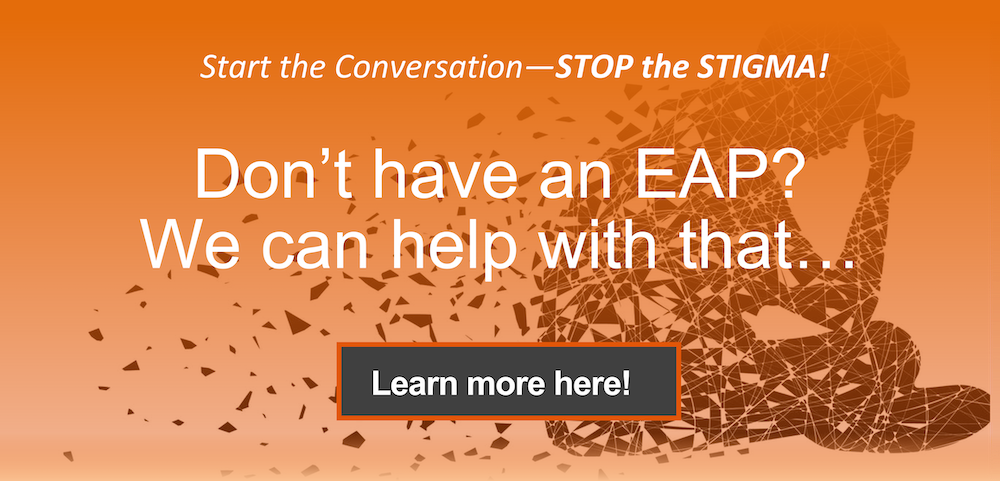It’s easy to admire success. Headlines highlight achievements, promotions, and breakthroughs, but rarely the missteps that came first.
Yet behind many of the world’s most accomplished individuals are stories of failure that nearly derailed everything. Oprah Winfrey was once told she was “unfit for television.” Michael Jordan didn’t make the varsity basketball team his sophomore year. Walt Disney was fired by a newspaper editor who claimed he “lacked imagination.”
These aren’t cautionary tales. They’re proof that failure isn’t the opposite of success; it’s often part of the path that leads to it.
In a professional setting, failure can be unsettling. It challenges identity, rattles confidence, and can cloud future decisions. But when reframed, failure can become a powerful tool for growth. It clarifies values, builds resilience, and sharpens judgment.
Experiencing failure might be painful initially, though without it, you might miss the many benefits it can bring. - Indeed Career Guide
The real challenge isn’t avoiding failure. It’s learning how to use it.
Common Misconceptions About Failure
Failure tends to carry weight far beyond the moment it happens. In the workplace, it’s often seen as a reflection of competence or potential. That perception shapes behavior. Instead of taking thoughtful risks or speaking up with new ideas, people focus on staying within the lines.
One of the most damaging assumptions is that failure means you’re not capable. But more often, failure is a sign that you’re operating outside your comfort zone—trying something difficult, unfamiliar, or ambitious. It’s an indicator of effort and experimentation, not inadequacy.
Another misconception is that failure leads to lasting damage. While some mistakes have long-term consequences, many reveal valuable information: gaps in planning, flaws in communication, or mismatches in expectations. When examined honestly, those details can inform better choices and stronger strategies moving forward.
It’s also common to assume that successful people simply avoid failure. In fact, many of them experience more failure than average. They just tend to recover quickly, reflect honestly, and apply what they’ve learned.
Why Failure Can Strengthen Professional Success
Failure is rarely pleasant, but it often serves as a more effective teacher than success. When things go wrong, they demand attention. They interrupt autopilot. And in that disruption, they create the opportunity for real insight into what we value, how we think, and how we lead.
3 ways failure can help with success
1. Builds Resilience
Resilience isn’t something people are born with. It develops over time, especially in response to difficult or challenging experiences. In a professional setting, failure often creates the conditions that foster that growth. When a project unravels or a decision backfires, people are forced to adapt, reflect, and continue forward.
According to the American Psychological Association, resilience is both a process and an outcome. It involves mental, emotional, and behavioral flexibility in the face of stress or adversity. Navigating failure requires that kind of flexibility. It teaches professionals how to manage uncertainty, regulate emotional responses, and stay focused even when outcomes fall short of expectations. Those skills are essential for long-term effectiveness, especially in unpredictable or high-pressure environments.
2. Clarifies goals and values
When something fails, one of the first questions to ask is, “Was I even aiming at the right thing?” Sometimes, failure reveals a flaw in the strategy. Other times, it reveals a deeper misalignment between the goal and the person pursuing it.
Professionals often inherit goals from company culture, previous roles, or ideas about what success is “supposed” to look like. It’s not uncommon to chase something for months or even years, only to find that reaching it feels hollow. When failure interrupts that path, it creates a pause. That pause can be uncomfortable, but it can also prompt the kind of honest reflection that success rarely invites.
3. sharpens critical thinking and decision making
There’s a tendency to treat failure as a sign that someone didn’t think carefully enough. But in many cases, failure is what produces careful thinking.
A failed product launch might reveal a flawed assumption about the customer. A breakdown in team communication might expose an overreliance on informal processes. These moments don’t just illuminate the problem, they show how your thinking got there.
When professionals reflect on failure without defensiveness, they start to ask better questions. What information did I overlook? Where did my assumptions take the lead? Was I solving the right problem, or just the one that was easiest to define?
When Setbacks Become Steppingstones
Not all failures come from inexperience or poor planning. In many cases, they emerge after doing everything right—at least on paper. A strong pitch is rejected. A project you’ve invested months into gets shelved. You apply for a promotion and don’t even get the interview. These moments can feel both personal and arbitrary, which is part of what makes them so difficult to navigate.
But they also mark potential turning points when a career can shift, not by design, but by disruption.
Turning Points in a career
Career setbacks can upend professional identity. When your role is tied to how you see yourself, rejection can feel like erasure. But these moments often create space for reflection and realignment.
SHRM outlines strategies for reframing setbacks like layoffs, missed promotions, or career stalls. It encourages professionals to acknowledge the emotional impact, but also to look for patterns, clarify values, and reconnect with long-term goals. This process can shift the focus from loss to opportunity, helping individuals define what they want next rather than trying to reclaim what they’ve lost.
leadership growth through missteps
Failure looks different at the leadership level. The mistakes often involve people: hiring the wrong person, miscommunicating a vision, overestimating what a team can handle. These errors can have ripple effects, eroding trust and morale. But they also offer rare opportunities for leaders to grow not just in skill, but in humility.
Leaders who take accountability for failure, without retreating into defensiveness or blame, often gain credibility rather than lose it. The experience of getting it wrong forces reflection on how decisions were made, how input was gathered (or ignored), and how others were affected. When that reflection turns into changed behavior, it strengthens the team, not just the individual.
Building a Culture That Learns From Failure
Failure is often framed as an individual experience, but in most workplaces, it’s deeply shaped by culture. In some environments, mistakes are quietly buried or explained away. In others, they’re surfaced and studied. The difference isn’t just philosophical. It has a direct impact on how people take initiative, share ideas, and respond to challenges.
Failure is often framed as an individual experience, but in most workplaces, it is deeply shaped by culture. Some environments encourage open discussion and collective learning, while others quietly conceal mistakes. This difference has real impact on innovation and team engagement.
distinguishing the types of failure
Not all failures are the same. Amy Edmondson, a Harvard Business School professor, defines three types of failure:
- Preventable failures store in well-known territory where attention or training is lacking
- Complex failures arise when multiple factors interact unpredictably
- Intelligent failures How do different team members react when deadlines are tight or priorities shift? Who becomes withdrawn versus who becomes more vocalist?
These categories matter because they shape how we interpret failure. Only preventable failures—those that result from negligence—should trigger corrective action. Intelligent failures, though undesirable in outcome, indicate learning and discovery. Highlighting this distinction enables teams to focus on prevention where it matters while encouraging smart experimentation where it counts.
Modeling Resilience From the top
Leaders set the tone for how failure is perceived. If they treat missteps as moments of shame or weakness, others will follow suit. But when leaders are transparent about their own mistakes it gives everyone else permission to do the same.
This doesn’t mean making failure a goal. It means creating space for thoughtful risk, honest reflection, and open dialogue.
Practical Tools for Bouncing Back
Failure may be inevitable, but how you respond to it is not. The period immediately after a setback is often the most important emotionally, strategically, and professionally.
For Individuals: Regrouping with intention
- Start with reflection, not reaction
- Separate the failure from your identity
- Reframe the narrative as a process
- Seek out feedback and perspective
- Adjust goals if needed
- Take deliberate next steps
for managers: Supporting recovery and learning
- Acknowledge effort, not just results
- Coach through the moment with open-ended questions
- Avoid immediate blame in complex situations
- Reinforce that growth matters more than short-term perfection
Reframing the Role of Failure
In professional life, failure is often viewed as something to avoid or recover from quietly. But when approached with honesty and reflection, it can serve as a powerful accelerant for growth. It sharpens thinking, strengthens resilience, and reveals what matters most.
When you partner with Ulliance, our Life Advisor Consultants are always just a phone call away to teach ways to enhance your work/life balance and increase your happiness. The Ulliance Life Advisor Employee Assistance Program can help employees and employers come closer to a state of total well-being.
Investing in the right EAP or Wellness Program to support your employees will help them and help you. Visit https://ulliance.com/ or call 866-648-8326.
The Ulliance Employee Assistance Program can address the
following issues:
• Stress about work or job performance
• Crisis in the workplace
• Conflict resolution at work or in one’s personal life
• Marital or relationship problems
• Child or elder care concerns
• Financial worries
• Mental health problems
• Alcohol/substance abuse
• Grief
• Interpersonal conflicts
• AND MORE!
References:
Failing Well: Why Failure Is the Foundation of Success; Harvard Business School Online
https://online.hbs.edu/blog/post/failing-well
How Failing Well Can Help Companies Thrive; Great Place to Work
https://www.greatplacetowork.com/resources/podcast/amy-edmondson-on-how-failing-well-can-help-companies-thrive
Resilience After Job Loss: Transform Setbacks Into Growth; SHRM
https://www.shrm.org/topics-tools/news/resilience-after-job-loss-transform-setbacks-into-growth
Why Failure Is A Necessary Part Of Success; Forbes; Forbes Coaches Council
https://www.forbes.com/sites/forbescoachescouncil/2022/06/29/why-failure-is-a-necessary-part-of-success/
Why Failures Can Lead To Success; Indeed Career Guide
https://www.indeed.com/career-advice/career-development/failures-lead-to-success



.jpg?width=600&height=338&name=2Google%20Review%20NEW%20w%20click%20here%20button%20(1).jpg)
